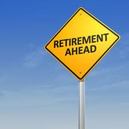
A. There are three important numbers to remember when it comes to taking money out of your 401K.
Age 55
This is the first year you can start taking money out of your 401k or 403b without the usual 10% penalty, if you no longer work for your employer which sponsors your 401k/403b.
Note, there are two caveats: 1) if you retire at age 54 and wait till age 55 to take the withdrawal, the 10% early withdrawal penalty will apply. 2) You can Not roll over your 401k plan to an IRA then withdraw money.
You may wonder that if you retire at age 55, should you take your money out of 401k and invest on your own, because 401k earnings will be taxed as income while individual investments are taxed at presumably lower long term capital gain tax rate? Plus, 401K is subject to the required minimum distribution at age 70.5.
The answer depends on your unique circumstances: your retirement year income tax, your future income tax, and your capital gain tax rate. You can run the free online calculator to see should you cash out 401k at age 55 or not.
Age 59.5
This is the official year you can take 401k/403b distribution without early withdrawal penalty. However, access to your 401k funds at age 59 1/2 depends on whether you are still working or not. Here are the basics:
- If you have rolled your 401k funds to an IRA, age 59 1/2 is the earliest you can withdraw funds from an IRA account and pay no early withdrawal penalty tax.
- If your funds are still in the 401k plan and you are retired, you can access 401k funds at age 59 1/2 and pay no early withdrawal penalty tax.
- If you are still working, you can access funds from an old 401k plan once you reach age 59 1/2, but you may not have the same access to funds inside the 401k plan at the company you currently work for.
- If you are still working for the company at which your 401k plan is at, you will have to check with your 401k plan administrator to see if your plan allows what is often called an “in-service” withdrawal at age 59 ½. Some 401k plans allow this and others do not.
Age 70.5
Age 70 1/2 is the age that required minimum distributions start. Here is a caveat:
- If are still employed by the company at which your 401k plan is at, you are not an owner, and you do not wish to take a distribution, your plan may offer an exception to these mandatory distributions. Check with your plan administrator to see if they allow an exception to the required minimum distribution rules if you are still working at age 70 1/2.
- To calculate your annual RMD, use our free online RMD calculator.

 RSS Feed
RSS Feed
